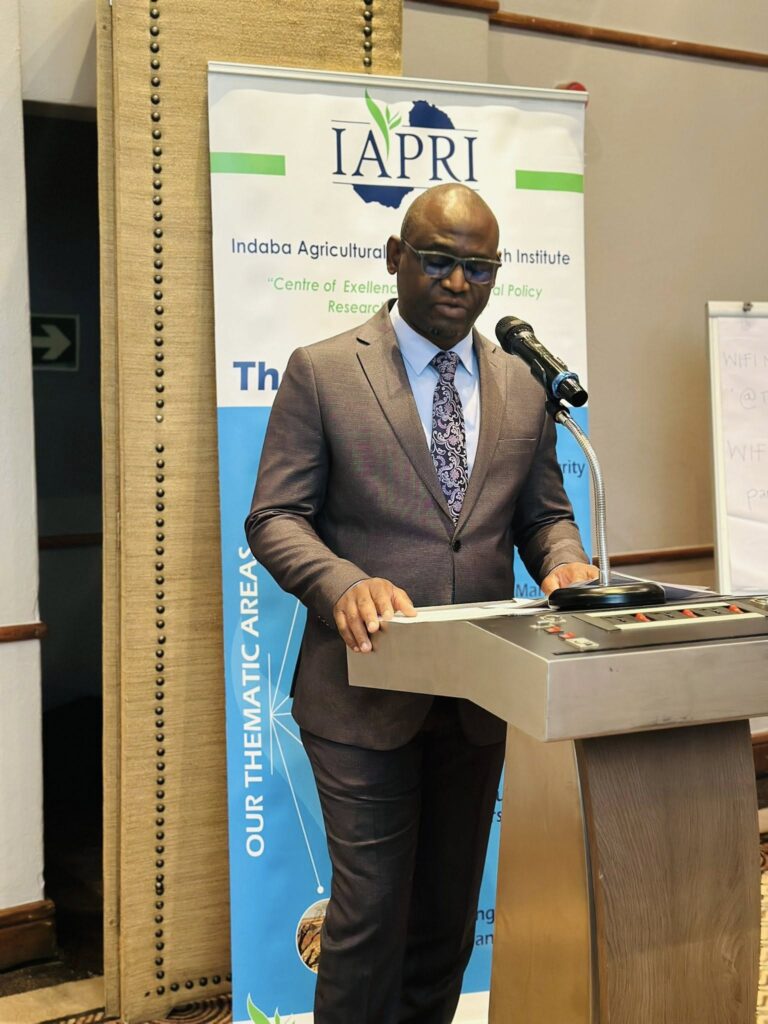Zambia Moves to Reform Key Agricultural Laws to Boost Sector Growth
The Ministry of Agriculture today hosted the Second National Reference Group Consultative Meeting, bringing together key stakeholders to deliberate on the review of three critical laws aimed at transforming Zambia’s agricultural sector.
Speaking on behalf of the Permanent Secretary for Technical Services, Mr. John A. Mulongoti, Dr. Ndashe Kapulu, Acting Director of the Zambia Agriculture Research Institute (ZARI), emphasized the importance of stakeholder input in shaping the proposed reforms.
He noted that feedback from the initial consultative meeting held in April 2025 had informed the development of the Regulatory Impact Assessment (RIA) report.
“The Ministry is grateful for the insights and contributions you provided during the initial phase of this review. These views have played a critical role in shaping the RIA report on the Agricultural Credits Act No. 35 of 2010, the proposed Agricultural Marketing Bill of 2012, and the Food Reserve Act No. 6 of 2020,” Dr. Kapulu stated.
Mr. Mulongoti, through Dr. Kapulu, underscored the significance of agriculture in achieving the nation’s Vision 2030 and the 8th National Development Plan (8NDP). He affirmed the Government’s commitment to a resilient and competitive agricultural sector through the Comprehensive Agricultural Transformation Support Programme (CATSP).
Key findings from the RIA process highlighted the need to redefine the role of the Food Reserve Agency, establish a viable commodity exchange, recognize warehouse receipts as tradable instruments, and improve market participant registration and agricultural market information systems.
“These are real challenges that continue to affect the performance of our sector. The findings from the RIA process have given us the momentum we need to move forward with meaningful legal reforms,” he said.
A revised draft of the Agricultural Marketing Bill has already been circulated for review, and provincial consultations are scheduled to commence in the second week of August. The legislative drafting process, in collaboration with the Ministry of Justice, is expected to be completed by the end of September 2025.
The Permanent Secretary called for continued stakeholder engagement, encouraging participants to contribute forward-looking recommendations that promote food security, job creation, and poverty reduction.
The Ministry expressed its gratitude to all participants and reaffirmed its commitment to a collaborative and inclusive legislative reform process.



